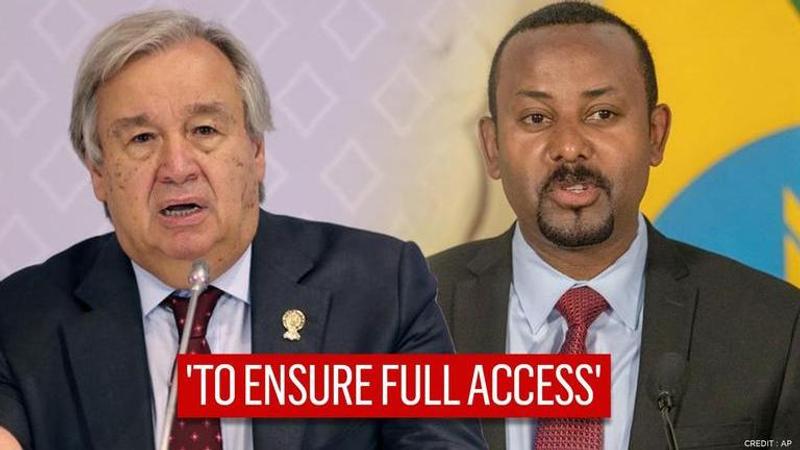Published 12:13 IST, December 10th 2020
UN reaches new agreement with Ethiopian govt for joint assessment missions
United Nations and Ethiopian govt have reached a new agreement to allow joint missions to carry out an assessment of humanitarian needs in the Tigray region.

The United Nations and the government of Ethiopia on Wednesday reached a new agreement to allow joint missions to carry out an assessment of the situation and provide humanitarian assistance in the Tigray region. This comes a week after the initial agreement between Ethiopia and the UN to allow humanitarian assistance to reach the people stuck in the region. However, the agreement proved impossible to implement right away because of the confusion regarding the places that can be accessed by the aid agencies.
"After the first agreement that was not possible to implement immediately that we have now a second agreement for joint assessment missions in relation to humanitarian needs between the UN and Ethiopia to make sure that there is full access to the whole of the territory and full capacity to start humanitarian operations based on real needs and without any kind of discrimination," UN Secretary-General Antonio Guterres said in a press briefing on Wednesday.
Mr. Guterres also said that there are no Eritrean troops present in the Tigray region as Prime Minister Abiy Ahmed himself has assured him when he confronted the Nobel Peace Prize-winning Ethiopian leader regarding the same.
Tigray conflict
The immediate conflict in the region was sparked after the ruling TPLF party, a minority party at the centre but a strong and powerful group in the region, allegedly attacked a military base of the federal forces on November 4 following which Ahmed's government launched a military offensive.
Relations between TPLF and the government of Prime Minister Abiy Ahmed had started straining after the latter announced reforms to end ethnic federalism in the country. Ahmed dissolved the Ethiopian People's Revolutionary Democratic Front, which had ruled the country for 30 years, and created a new Prosperity Party by merging all regional parties. The creation of the Prosperity Party meant a reduction of TPLF's influence at the federal level, which prompted the powerful regional organisation to refuse to join the party.
The relations took a drastic hit after the TPLF party held parliamentary elections in September despite the central government's decision to postpone all polls in the country due to COVID-19 concerns.
Updated 12:13 IST, December 10th 2020




